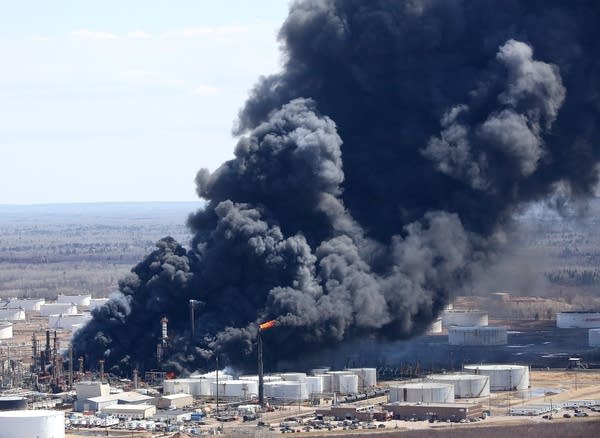Federal investigators blame valve failure for Husky refinery explosion

The U.S. Chemical Safety Board released an update Thursday on the explosion and fire at the Husky Energy refinery in Superior in late April.
Bob King | Duluth News Tribune
Go Deeper.
Create an account or log in to save stories.
Like this?
Thanks for liking this story! We have added it to a list of your favorite stories.


